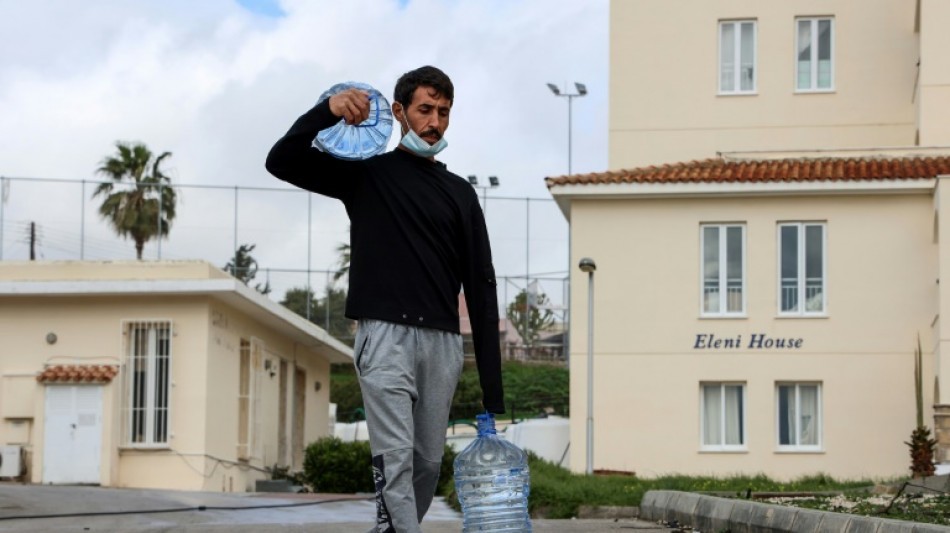
-
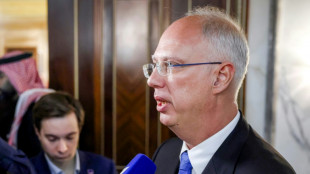 Top Russian official in Washington for talks on improving ties
Top Russian official in Washington for talks on improving ties
-
Sinner's former physio to blame for failed dope tests, says ex-physical trainer

-
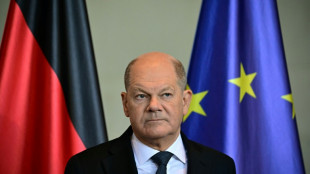 Germany slams Trump tariffs, US tech titans in crosshairs
Germany slams Trump tariffs, US tech titans in crosshairs
-
Trump tariff blitz sparks retaliation threats, economic fears
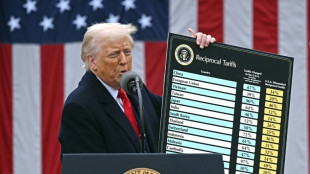
-
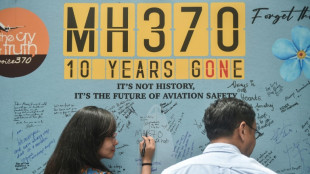 Search for Malaysia's long missing MH370 suspended
Search for Malaysia's long missing MH370 suspended
-
Hungary announces ICC withdrawal as Israel's Netanyahu visits
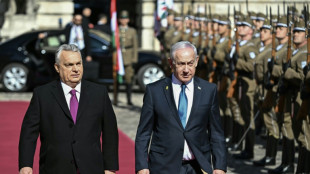
-
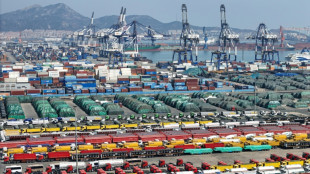 Trump's tariffs sting Asian giants, including US allies
Trump's tariffs sting Asian giants, including US allies
-
India says 'examining the implications' of US tariffs
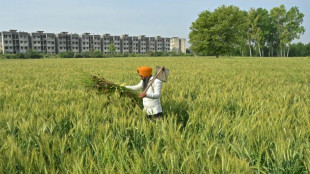
-
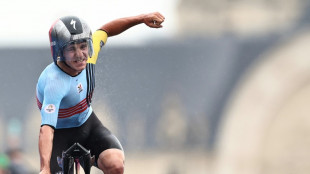 Evenepoel set to make injury return at Tour de Romandie
Evenepoel set to make injury return at Tour de Romandie
-
USA sole bidder for 2031 Women's World Cup, UK set to host in 2035 - Infantino
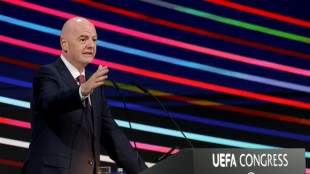
-
 McLaren's Norris says it's 'our turn' for success
McLaren's Norris says it's 'our turn' for success
-
Lessons and liquids: buried alive in Myanmar's earthquake
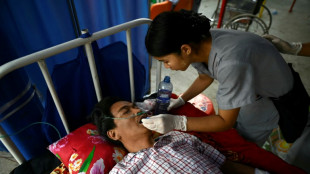
-
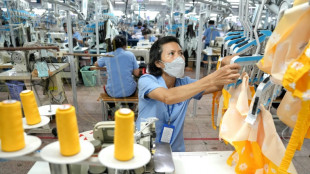 Trump tariffs spark fears for Asian jobs, exporting sectors
Trump tariffs spark fears for Asian jobs, exporting sectors
-
Stocks and dollar sink, havens rally as Trump tariffs fan trade war
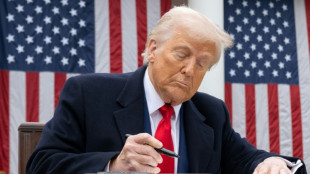
-
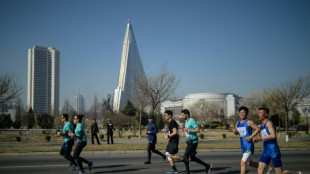 Runners fly to North Korea for first post-Covid Pyongyang Marathon
Runners fly to North Korea for first post-Covid Pyongyang Marathon
-
Hamilton rubbishes claims he's lost faith in Ferrari
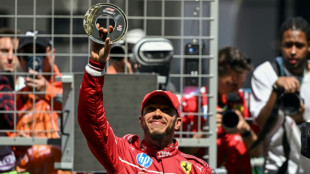
-
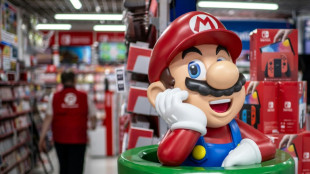 Nintendo Switch 2 sparks excitement despite high price
Nintendo Switch 2 sparks excitement despite high price
-
Sri Lanka's crackdown on dogs for India PM's visit sparks protest
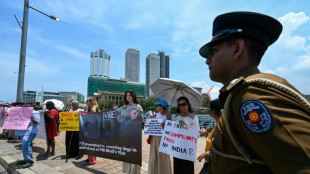
-
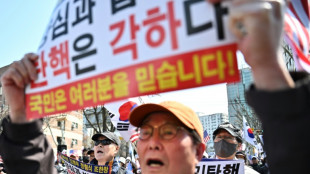 S Korea police raise security levels ahead of impeachment verdict
S Korea police raise security levels ahead of impeachment verdict
-
China vows 'countermeasures' to sweeping new US tariffs
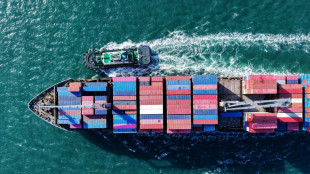
-
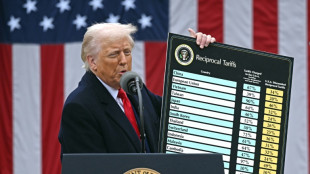 Trump jolts allies, foes and markets with tariff blitz
Trump jolts allies, foes and markets with tariff blitz
-
France says EU to target US online services after Trump tariffs
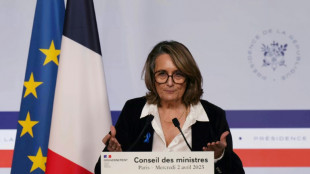
-
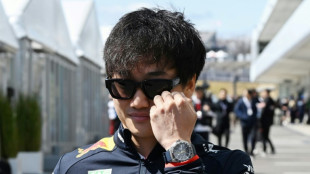 Tsunoda vows to bring 'something different' after Red Bull promotion
Tsunoda vows to bring 'something different' after Red Bull promotion
-
Verstappen not happy with Tsunoda-Lawson Red Bull swap

-
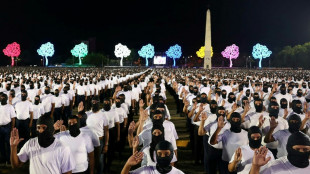 Experts accuse 54 top Nicaragua officials of grave abuses
Experts accuse 54 top Nicaragua officials of grave abuses
-
Remains of 30th victim of Los Angeles fires found
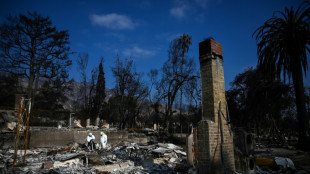
-
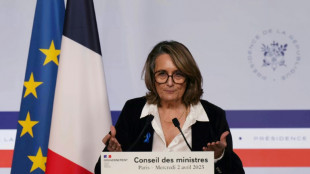 EU to target US online services after Trump tariffs: France
EU to target US online services after Trump tariffs: France
-
How Trump's 'liberation day' tariffs will impact China
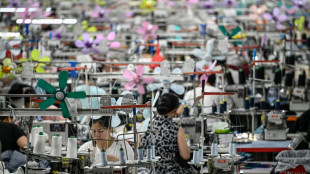
-
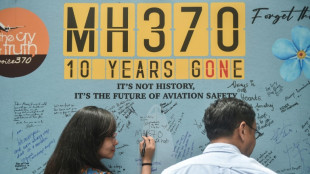 Malaysia suspends search for long-missing flight MH370
Malaysia suspends search for long-missing flight MH370
-
Search for long-missing flight MH370 suspended: Malaysia minister
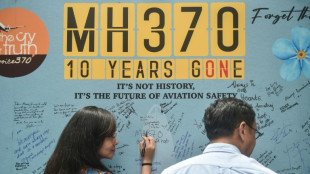
-
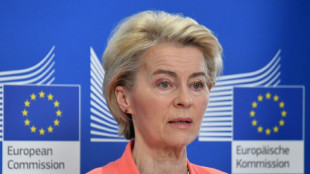 Europe hits out at Trump tariffs, keeps door open for talks
Europe hits out at Trump tariffs, keeps door open for talks
-
Myanmar's junta chief to head to Bangkok summit as quake toll surpasses 3,000
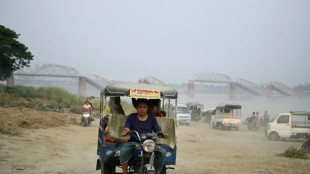
-
 Lawson vows to prove he belongs in F1 after shock of Red Bull axing
Lawson vows to prove he belongs in F1 after shock of Red Bull axing
-
Australia sweats through hottest 12 months on record: official data
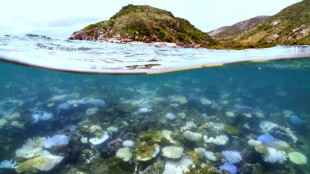
-
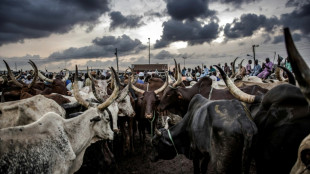 Livestock theft is central to jihadist economy in west Africa
Livestock theft is central to jihadist economy in west Africa
-
South African artist champions hyenas in 'eco-queer' quest
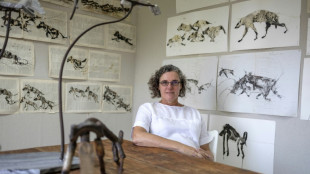
-
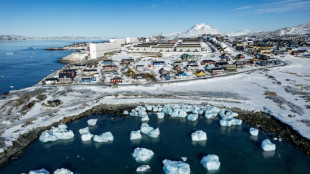 Danish PM in 'unity' Greenland visit amid US takeover threats
Danish PM in 'unity' Greenland visit amid US takeover threats
-
Taiwan says US tariffs 'highly unreasonable'
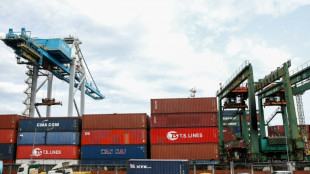
-
 Lawson says ruthless Red Bull axing was 'tough to hear'
Lawson says ruthless Red Bull axing was 'tough to hear'
-
Heat humble Celtics for sixth straight win, Thunder roll on

-
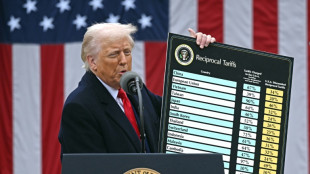 Trump escalates trade war with sweeping global tariffs
Trump escalates trade war with sweeping global tariffs
-
Japan says US tariffs 'extremely regrettable', may break WTO rules
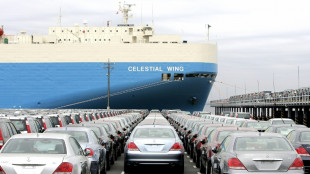
-
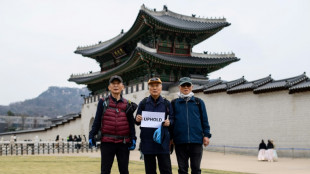 South Koreans anxious, angry as court to rule on impeached president
South Koreans anxious, angry as court to rule on impeached president
-
Juve at in-form Roma with Champions League in the balance

-
 Injuries put undermanned Bayern's title bid to the test
Injuries put undermanned Bayern's title bid to the test
-
Ovechkin scores 892nd goal -- three away from Gretzky's NHL record

-
 Australian former rugby star Petaia signs for NFL's Chargers
Australian former rugby star Petaia signs for NFL's Chargers
-
China says opposes new US tariffs, vows 'countermeasures'
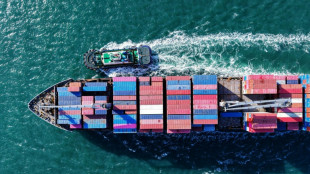
-
 Athletics world watching as 'Grand Slam Track' prepares for launch
Athletics world watching as 'Grand Slam Track' prepares for launch
-
Heat humble Celtics for sixth straight win, Cavs top Knicks


Godsend or 'ghetto': Syrian migrants flock to small Cyprus town
On the Mediterranean island of Cyprus, grappling with an influx of asylum seekers, the small town of Chlorakas has become the centre of tensions. One-quarter of its residents are refugees.
While local authorities talk of "ghettoization" and seek to move some of them, many of the newcomers renting flats there refuse to leave, saying they have nowhere else to go.
The Cypriot government says the divided country has the highest number of first-time asylum applications in the European Union per capita, accusing Turkey of sending many across the UN-controlled buffer zone.
"We have a demographic problem," said Chlorakas Mayor Nicholas Liasides.
Five kilometres (three miles) from the west coast city of Paphos, Chlorakas is home to 7,000 people, 1,700 of whom are asylum seekers.
Most of them are from Syria, and their number has more than doubled from 800 over the past three years.
At the heart of the issue, according to the mayor, is the St Nicolas residential complex on the outskirts of town where around 700 of the refugees live.
Located on a hill overlooking the Mediterranean Sea, the complex formally known as "St Nicolas Elegant Residence" consists of about 20 peach-coloured residential blocks with terracotta tiles.
But its lustre began to fade following a 2018 financial dispute between the owner and the municipality over unpaid water bills.
When the Covid pandemic from 2020 led to a plunge in foreign visitor arrivals, refugees took their place.
- 'Shameful' -
Liasides told AFP he believes the solution is to resettle the refugees throughout Cyprus.
"This is a ghetto and actually we want to break (up) this ghetto," he said.
One month ago the local authorities declared the site unfit for habitation, and cut off the water supply to 250 apartments.
"It's shameful," said Neofyto Paranetis, who is in his 70s and manages the complex.
He is under criminal investigation for alleged violation of an interior ministry decree, issued in December, which forbids any new refugees from staying in Chlorakas.
"These are just excuses because I am housing refugees," Paranetis said.
Tensions in Chlorakas worsened in early January after two fights between refugees, some of whom lived at St Nicolas, said Paphos police spokesman Michalis Nicolaou.
"For one month we've been patrolling in the village every evening, and we have investigated more than 80 people illegally living there," he said, noting the ministerial ban on new residents.
Since early January townspeople have organised two protests, which drew dozens carrying signs hostile to asylum seekers.
A cafe owner, who asked to remain anonymous because he doesn't "want any trouble" with the refugees, said: "People here are hospitable towards the refugees, but now there are many who are illegal and creating problems here.
"Most of the people in the village are scared to go near the place because there are too many refugees."
Local business owner Geoffrey Velloza, 50, said that "to be honest, I haven't been affected by their presence. They have been perfectly decent with me, but I feel for others who were made uncomfortable."
- Where to go? -
More than 12,000 Syrians have sought refuge in Cyprus since 2011 when their country's civil war began, forcing millions to flee abroad.
Those who reached Cyprus arrived on an island with its own painful history of displacement.
The territory has been divided since Turkish troops invaded in 1974 and occupied its northern third.
Hundreds of thousands of Greek Cypriots in the north and Turkish Cypriots in the south fled to the opposite sides.
Mohammed Ramadan Diab, 37, originally from Idlib in Syria, arrived illegally in Chlorakas via Turkey a little more than a year ago.
In recent weeks police investigated him at St Nicolas.
"Officers took me to the station and made me sign a document, but I didn't know what it said," the father of six recalled.
"I'm trying to find somewhere else to stay, but people refuse to rent to me because I am Syrian."
Another Idlib native, Nayef al-Shouyoukh, 32, has stayed at St Nicolas for three years.
"Police regularly come to see me for an ID check. They pound the door with their feet," scaring his three children, he said.
"I don't know where to go. I am barely surviving."
- 'Sieges and bombs' -
St Nicolas charges 350 euros rent a month ($400) for a two-bedroom apartment with a kitchen -- electricity and internet included.
"We want to stay in our homes," said Abdallah al-Khaled, 25, who reached Chlorakas three years ago after fleeing the ranks of the Syrian army.
"We survived sieges and bombs in Syria. We don't want to find ourselves back on the street."
Local authorities propose to move the refugees into camps in eastern Cyprus but those sites are already overpopulated, according to migrants' rights group Kisa.
In a statement, Kisa said the local authorities should establish programmes to help the refugees integrate.
Paranetis, the St Nicolas manager, said "the government should thank us because these refugees have no alternatives.
"Some day we might also become refugees, like we were in 1974 during the Turkish invasion."
P.Mathewson--AMWN